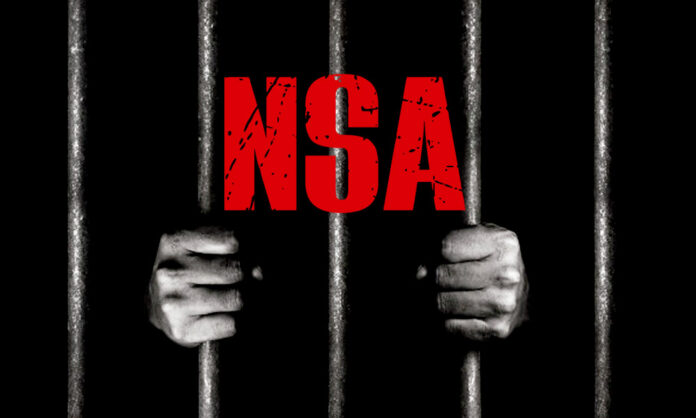- The National Security Act (NSA) is often in the news nowadays for mostly wrong reasons and hence, vociferously debated for its efficacy from different segments representing intelligentsia, civil society members, torchbearers, NGOs, opposition, and the ilk. The NSA has seen an increase in its implementation circumventing many of the provisions made available in the Indian Penal Code (IPC). Many voices claim the act is draconian that should not find a place in the modern democracies. They are right.

PC: IT’s Mains Articles Team
- The National Security Act was passed in 1980 by the Indian Parliament whose purpose is to provide for preventive detention in certain cases and matters connected therewith. This act empowers the Central Government and State Governments to detain a person to prevent him/her from acting in any manner prejudicial to the security of India, the relations of India with foreign countries, the maintenance of public order, or the maintenance of supplies and services essential to the community.
- One aspect that deserves thorough deliberation is to address voices crying hoarse about the indiscriminate use of the act against an individual(s) to curtail the freedom of speech as guaranteed in the Constitution. There are enough instances in the recent past holding individual(s) in preventive custody for months together without recourse to trial or remand hearing providing for an ideal situation for the state authorities to crush fundamental rights. The act has become no less than draconian is stating the obvious.

pc: Mail Today Bureau
- As can be seen around the country, imposing the NSA arbitrarily and extensions of detention thereof deprives the individual of the few safeguards under the act like the district magistrate delivering the detention order following a police report and a state advisory board headed by no less than a sitting High Court judge approving the same. State Governments pushing for an extension of detention renders the safeguards enumerated in the act null and void baring the high-handedness of the state machinery.
- Rightful questions raised against increasing cases of cow vigilantism, criticism against the ruling dispensation, human rights abuse, intolerance, moral policing, nationalism, patriotism, religious jingoism, and misogyny are attracting the draconian act muzzling voices forcefully. In one such instance, the Allahabad High Court recently ordered the release of an individual in Uttar Pradesh who was held under preventive detention under the act for over six months concluding that the speech at an anti-CAA protest in Aligarh did not attempt to promote hatred or destabilize law and order.

PC: Prabhakar Sinha
- The free world espoused by modern governments should not encourage taking umbrage under the provisions of any harsh laws that curb the freedom of expression. Vehemently opposing any form of criticism allows the ruling dispensation to develop complacency which is detrimental to the overall health of a democratic country like ours. Judicious usage of the act as intended while framing should be strictly adhered to instead of subjective implementation. Relook on the act is thus, necessitated.






